AppleInsider · Kasper's Automated Slave
About
- Username
- AppleInsider
- Joined
- Visits
- 52
- Last Active
- Roles
- administrator
- Points
- 10,963
- Badges
- 1
- Posts
- 66,634
Reactions
-
President Trump talked to Apple CEO Tim Cook after China tariff reduction
The phone calls between the President and the country's most lucrative tech company's CEO have become regular, though it isn't clear what they accomplish beyond keeping Apple on the nice list.
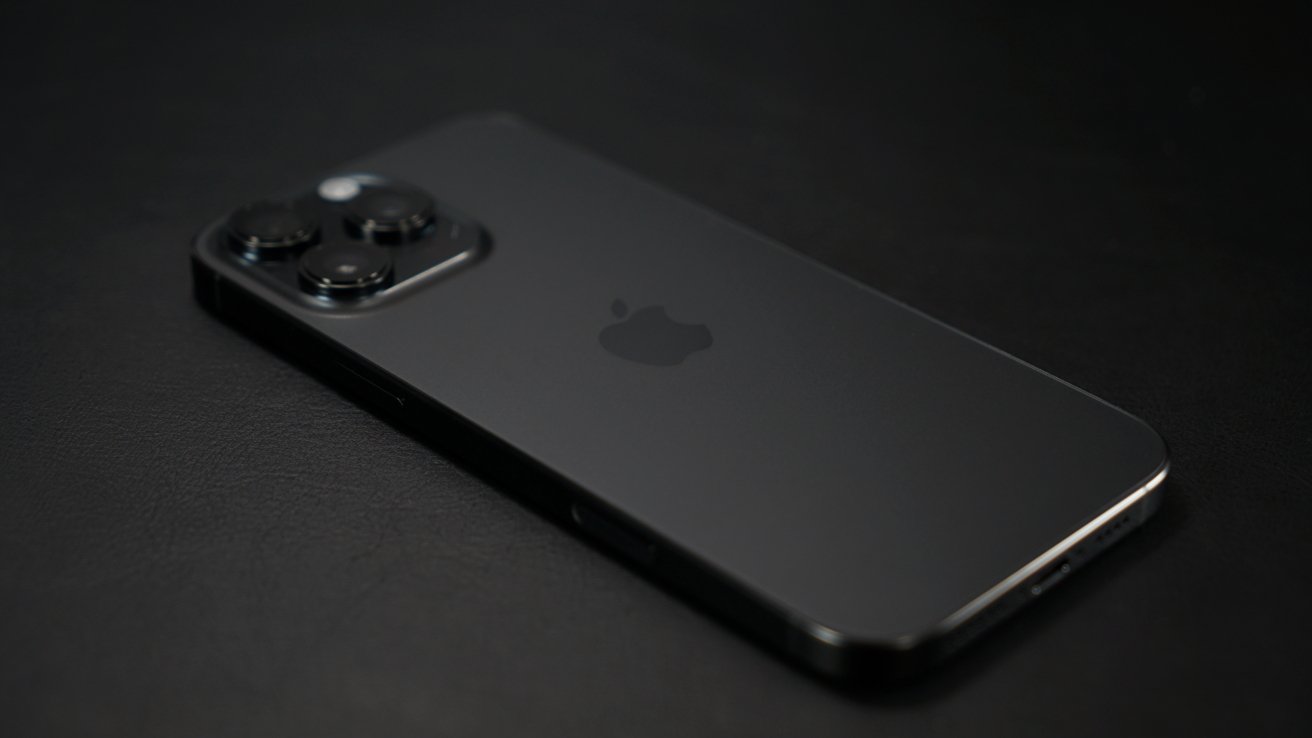
iPhone prices may be safe from going up, for now
The economically catastrophic and seemingly random tariff wars reached a new milestone on Monday as the Trump administration announced a new tariff deal with China. While Apple was exempt from much of the tariffs for now, it was still set to take a $900 million hit in the June quarter -- which now may have been lessened.
According to a report from CNBC, President Trump said he spoke with Apple CEO Tim Cook on the phone after announcing the changes to the tariffs in China. He didn't share details of the conversation, only that Cook will "even up his numbers."
There's no real way to interpret what that phrase might actually mean.
It could be referring to Apple not having to lose $900 million during the June quarter. However, that number won't be zero. The tariffs are still set to 10% to 30% based on which goods are being discussed -- still notably higher than before Trump took office.
The phrase could indicate that Apple's $500 billion investment in American manufacturing infrastructure could be recouped. However, whether or not Apple's investment is returned is moot because that money won't see returns for more than a decade.
There's a chance that he's referring to the price of the iPhone, which Apple is still toying with the idea of raising to account for tariffs. While Apple would still be taking a loss at 10%, it isn't as great a loss as at 145%, so it could eat that difference instead of passing it to customers.
Regardless, Apple won't be able to "even up numbers" for long, as a semiconductor tariff is still being worked on by the administration. That, and the chaotic back and forth on every economic policy, makes it impossible to predict the next three months, let alone the next three days.
Whatever the case, Apple has enough cash on hand to endure for many years, regardless of the whims of the US presidency. Cook's phone calls continue to be a part of his strategic playbook, which plays to Trump's ego in desiring phone calls and dinners with powerful people seemingly as a trade of good faith.
Read on AppleInsider

-
Tim Cook praises Trump in US tech titan meeting
Apple's Tim Cook attended President Trump's gathering of business CEOs via satellite, and committed the company to working with the administration.
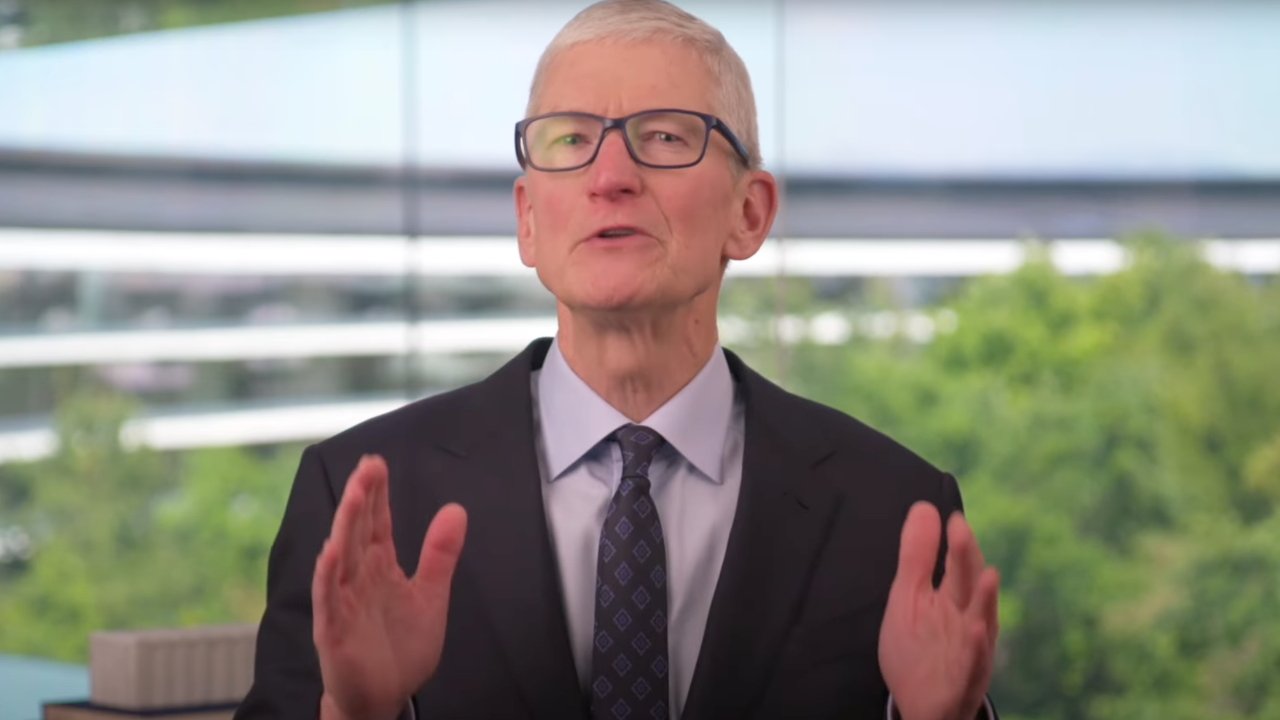
Tim Cook speaking at a Trump press call via satellite -- image credit: Fox
Cook has continued his political handling of Trump that's previously included conversations and meetings, which led to the president granting Apple a tariff exemption, despite then immediately denying that he had. This time, Cook appeared by satellite at a publicity meeting between Trump and around 20 business leaders, on April 30, 2025, according to Fox Business.
After apologizing that he couldn't be present in person, Cook repeated his regular remark that, "Apple could only have been created in the United States."
"We are a uniquely American company, and we care deeply about our impact on this country," he continued. Cook then gave examples of Apple's work in the US, starting with its politically savvy reframing of regular projects as $500 billion of new investment.
"I want to take a moment to recognize President Trump's focus on domestic semiconductor manufacturing," said Cook, "and we will continue to work with the administration as we invest in these areas."
"Needless to say, we are excited for the future of American innovation and the incredible opportunities it will create," he continued, "and we are honored to do our part."
Present in person at the meeting were Nvidia's Jensen Huang, plus representatives from Johnson & Johnson, Pratt Factories, and others.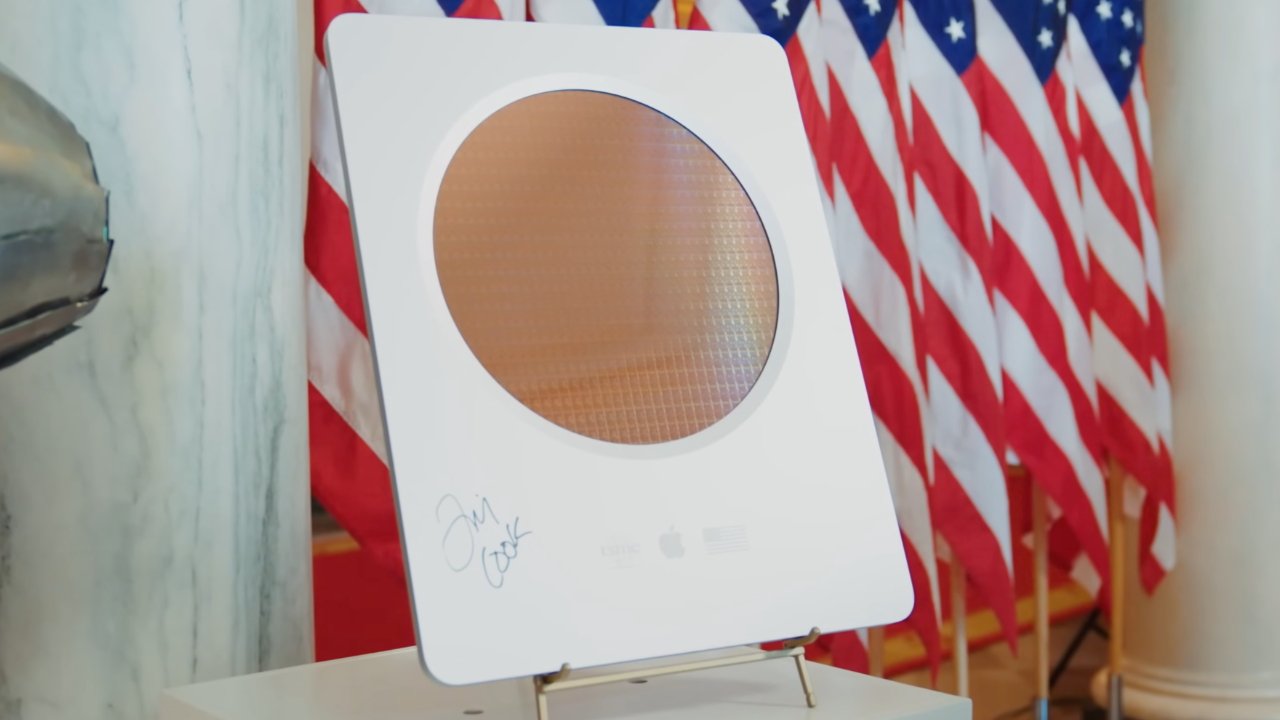
A Tim Cook-autographed Apple Silicon wafer on display next to an aircraft engine at the White House -- image credit: Fox
While a photocall was held in the Oval Office, the rest of the meeting took place in a White House room that featured examples of the various CEO's businesses. Alongside a Pratt & Whitney engine, there was an Apple Silicon wafer in a case autographed by Tim Cook.
The gift follows Cook's presentation to Trump of a Mac Pro in 2019.
Reportedly, as well as the PR aspect of the gathering, Trump is said to have met in private with the business leaders. It has not been reported whether they discussed tariffs, and the meeting was held before Cook revealed that Apple expects to take a $900 million hit from Trump's plans in the next quarter.
Read on AppleInsider

-
Apple EU anti-competition fine is a relatively modest $570 million to avoid Trump retaliat...
While the European Union has now fined Apple for what it claims is non-compliance with its Digital Markets Act, the sum involved has been kept low to avoid increasing EU/US trade tensions.
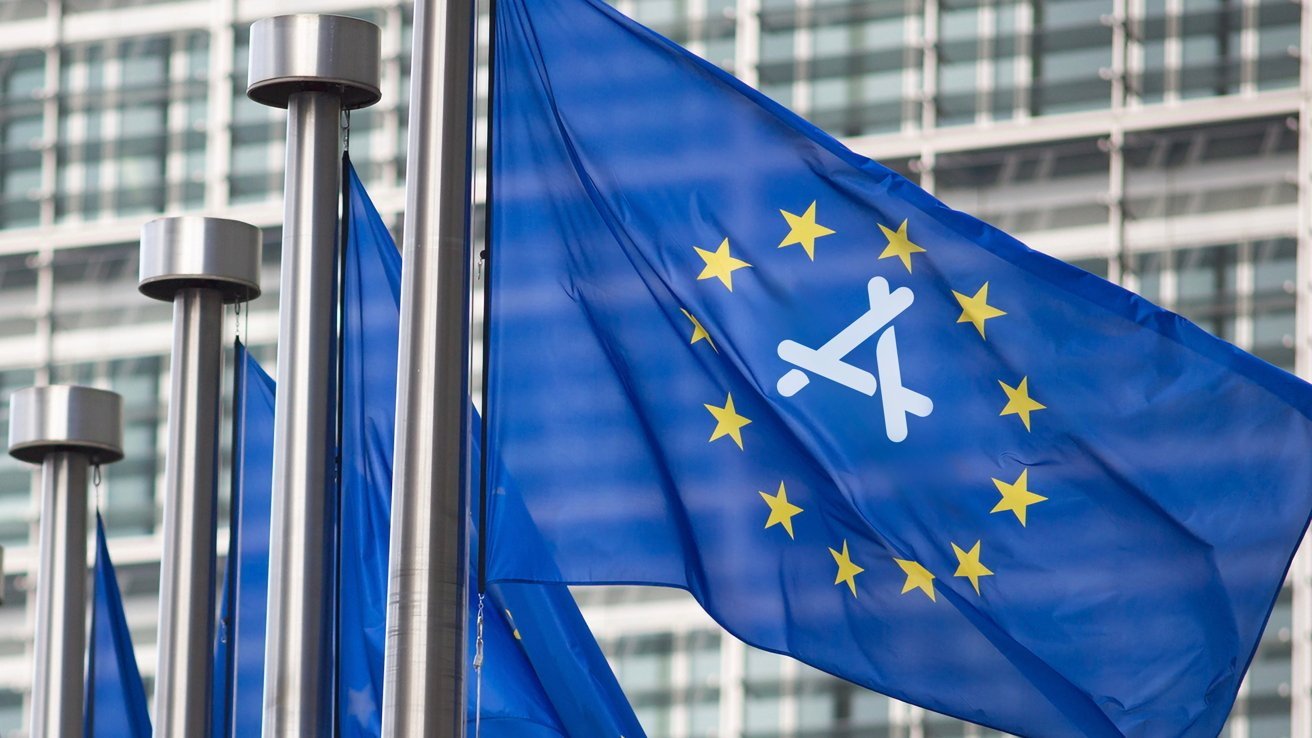
An EU flag with the App Store logo
After denying reports saying that the EU was delaying fines while its member states negotiate with Trump over his "reciprocal" tariffs, the EU has now issued fines for both Apple and Meta. Apple has been fined while Meta was fined $227 million, both for claimed non-compliance with the Digital Markets Act (DMA).
"Today's decisions send a strong and clear message," Teresa Ribera, the EU's new antitrust chief said in the full ruling. "The Digital Markets Act is a crucial instrument to unlock potential, choice and growth by ensuring digital players can operate in contestable and fair markets."
"It protects European consumers and levels the playing field," she continued. "Apple and Meta have fallen short of compliance with the DMA by implementing measures that reinforce the dependence of business users and consumers on their platforms."
Specifically, the EU claims that Apple has failed to comply with an obligation to allow developers in its App Store to freely inform customers of alternative offers, "steer them to those offers and allow them to make purchases.
According to Bloomberg, Apple has said it will appeal against the fine. The company is also said to have accused the EU of discriminating against it, and of requiring it to give its technology to rivals for free.
The EU has, though, accepted Apple's "early and proactive engagement" over its complaints concerning user choice concerning default iPhone apps such as browsers.
In the case of Meta, the EU has fined the social media firm over offering users in the European Union a "consent or pay" model. It meant that, for a time, Facebook users were effectively being forced to accept all ads.
However, the EU has also backed down on one key issue concerning Meta. As of now, the Facebook Marketplace is no longer to be subject to the DMA.
That's because Meta has persuaded the EU that Marketplace does not have sufficient business users to qualify under the DMA's conditions for being a gatekeeper platform.What happens next
Despite Apple reportedly saying it will appeal against the fine, at present the law gives the company 60 days to pay. If it fails to do so, Apple will "risk periodic penalty payments."
It's also possible that Trump will respond to the EU's fine. Before his current second term in office, Trump said that Tim Cook had recently complained to him about the EU.
Trump's comments were typically unclear, but he did conclude by saying that "I'm not going to let them take advantage of our companies -- that won't, you know, be happening.'"
During the term of Teresa Ribera's predecessor, Margrethe Vestager, the EU anticompetition regulator fined Apple $2 billion over allegations regarding Apple Music. Those spurious claims treated Apple Music as the dominant music streaming service, when EU-based Spotify is far more widely used.
With the EU now fining Apple around 70% less for this seemingly similar case, it does appear that the European Commission is trying to avoid a tariff war escalation. Ribera has previously claimed the EU would not be bullied by the US, but has said she was open to negotiations with the White House.
Read on AppleInsider
-
Tariffs not stopping Americans from wanting new iPhones with Apple Intelligence
Investment firm Morgan Stanley's latest US buyer survey shows record numbers intend to upgrade their iPhone -- and that they want Apple Intelligence, especially if they can also get a thin or foldable model.
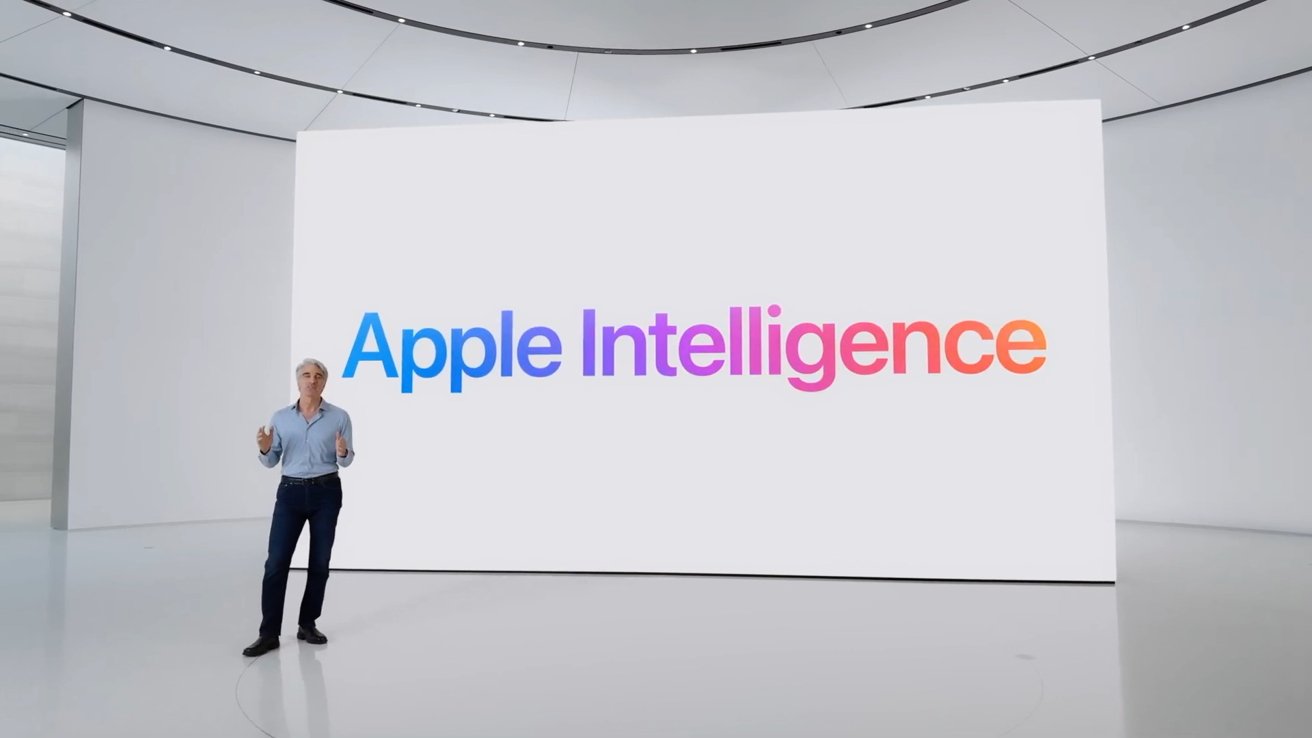
Apple Intelligence is coming this fall
Morgan Stanley has been rapidly dropping its price target for Apple, starting 2025 at $275, then dropping to $252 in March because of fears of lower than expected iPhone upgrades. Then the company expected Apple to drop to between $200 and $210 because of tariffs, which were then so much worse than anticipated, that it predicted a drop to as little as $172.
So even while it maintained its own price target at $220, Morgan Stanley can't have been expecting a great response from buyers in its latest survey. But according to an investor note seen by AppleInsider, that's what it got.
From a survey of 3,300 US consumers, Morgan Stanley reports:- 51% of current users intend to upgrade in the next 12 months
- 40% are strongly interested in foldable or thin iPhones
- 80% of US users with Apple Intelligence have used it in the last six months
- 42% believe it's very or extremely important to have Apple Intelligence
That figure of 51% of current iPhone users intending to upgrade is an all-time high record for Morgan Stanley's surveys. While the survey presumably doesn't specify models, upgrading within the next year means users intending to buy new iPhones from any of the iPhone 16 range, the iPhone 17 range, or the expected iPhone 17e in February or March 2026.
Then 40% of US iPhone users said that they were "extremely interested" in foldable or thin iPhones.
The 42% of current users who think Apple Intelligence is very or extremely important, specifically think so for their next iPhone. Of the users intending to upgrade in the next 12 months, that figure rises to 54%.Apple Intelligence is a hit
While acknowledging the criticisms over Apple Intelligence, Morgan Stanley also reports that users are willing to put their money where their mouths are. Its survey said that if Apple monetized Apple Intelligence, on the average, users would be willing to pay up to $9.11 per month for it.
That's significant both because of how it's risen since the firm's September 2024 survey that said $8.17 per month, and for the breakdown of that average. Without detailing figures, Morgan Stanley says the average has risen because more users are willing to pay between $10 and $15 per month, and fewer users don't want to pay at all.
Morgan Stanley says it does not expect Apple to start charging for Apple Intelligence yet, but it believes a paywall will come. Its analysts now predict that monetizing Apple Intelligence could earn Apple tens of billions of dollars annually, at some point.
In the shorter term, Morgan Stanley expects an iPhone slim in September 2025, and says an iPhone Fold is increasingly likely for 2026. It expects that such form factor changes could bring Apple growth that is similar to what it had during the last major form redesigns with the iPhone X and iPhone 12.
That folding iPhone, though, is expected to cost $2000 or more. It's not clear if Morgan Stanley has incorporated this cost point into their survey or estimates.
Morgan Stanley does also note, though, that Apple is facing hurdles such as the unpredictability of Trump's "reciprocal" tariffs. There is also the issue of weakening demand for the iPhone in China.
Read on AppleInsider
-
Synology partially drops support for third-party drives in 2025 NAS range
Synology is pushing for consumers to buy its own brand of hard drives for its newest NAS appliances, with only certified drives getting the full suite of software support.
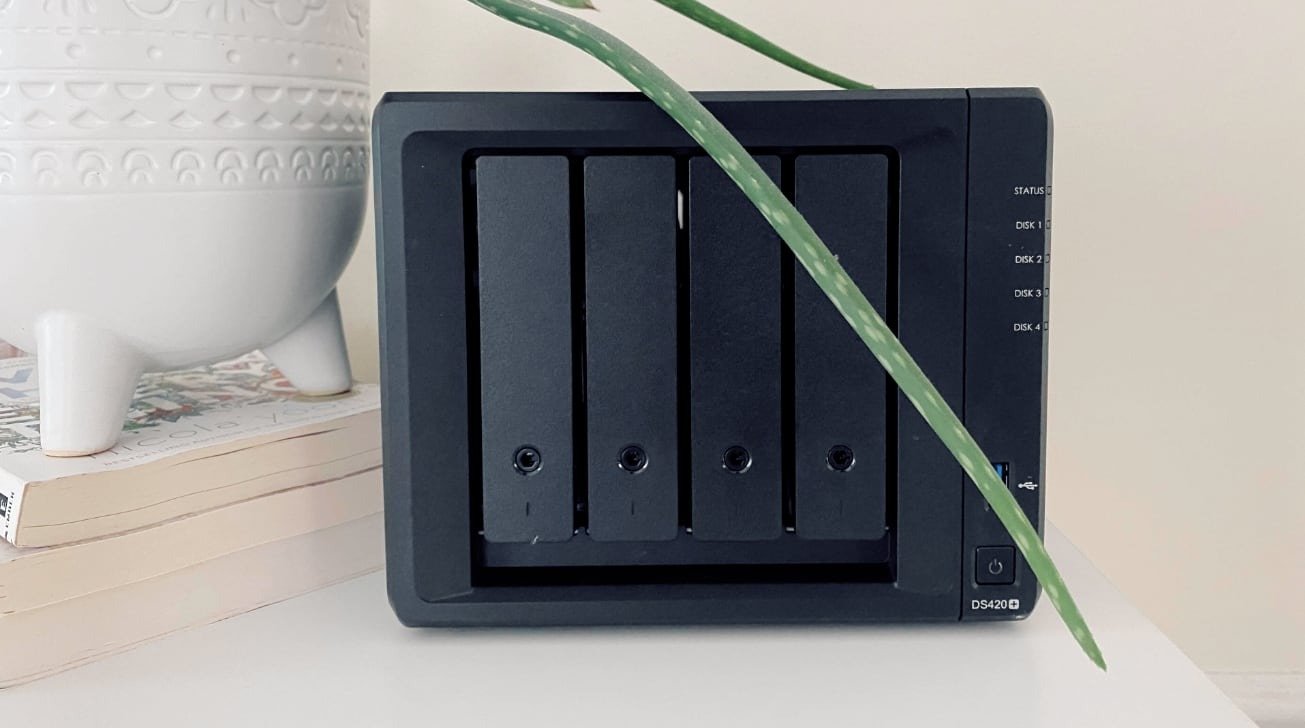
Older Synology NAS devices won't be affected by the drive changes
The cost of a network-attached storage (NAS) device could be split into two components, with the NAS itself as one part, while the drives that fill it make up the second. At higher capacities, the drives can be the more costly element to acquire, and often leads to users shopping around for deals on hard disks.
It appears that Synology is keen to earn more from users by getting them to purchase its own line of hard drives to go with the NAS.
Spotted by Hardwareluxx.de and confirmed by a press release on Synology's German-language website, the NAS maker is making changes to the way its drives software operates. For some models of NAS released in 2025, it will have a considerable preference to the use of Synology-branded or Synology-certified drives.
Synology says that its Plus series models shipping in 2025 will behave differently for third-party drives that haven't got the Synology certification. Officially sanctioned and deemed compatible drives will work with all of the features and support functions the NAS will offer, but others will not.
The limits of uncertified drives will include restrictions on pool creation, with them also missing out on volume-wide deduplication, lifespan analysis, and automatic hard drive firmware update features. The loss of these features for third-party drives could cause problems, such as users being unaware of issues until it's too late and data has already been lost.More warnings, more profits
While these features won't be available to uncertified third-party drives, the drives will still work with a NAS as storage. Warnings will be displayed about support, which could scare users into buying Synology's drives, but they should otherwise work fine.
The company adds that there won't be any changes to Plus models released in 2024 or in earlier years, with the exception of XS Plus models and rack-based editions.
The reason for the changes is put forward by Synology as a result of the success of its High-Performance series of drives. It's claimed that this will grant "the highest levels of security and performance, while also offering significantly more efficient support."
An alternative and fairly obvious reason for doing so is to earn more revenue from consumers kitting out the NAS. Rather than getting cheaper drives from another supplier, the changes will probably influence users into buying Synology's drives, so that they don't miss out on safety features.
Read on AppleInsider

